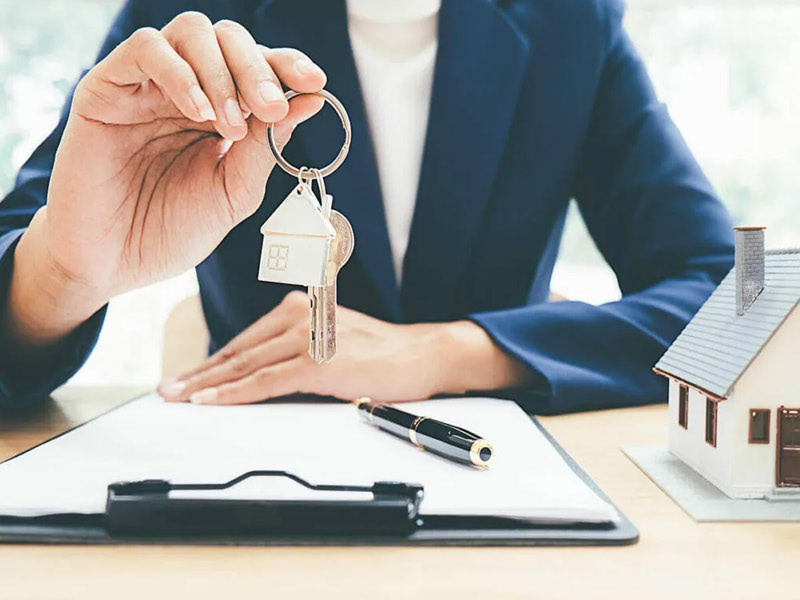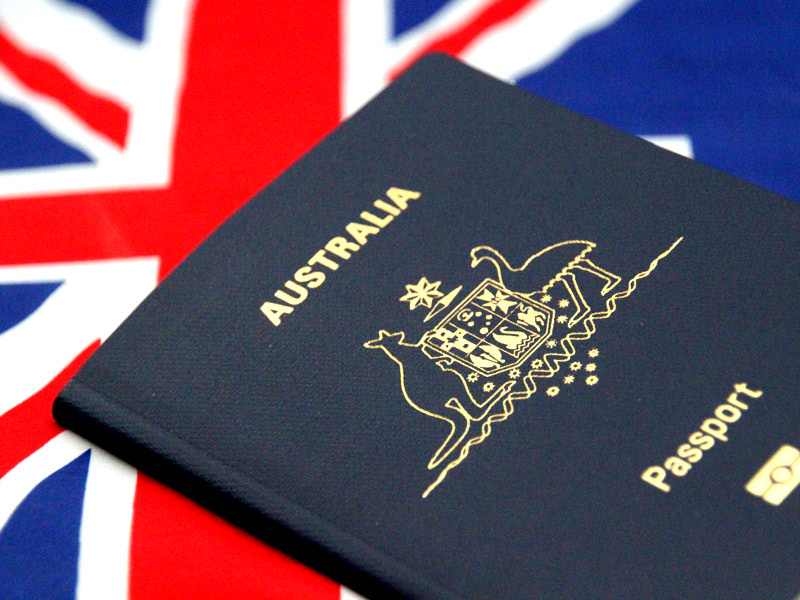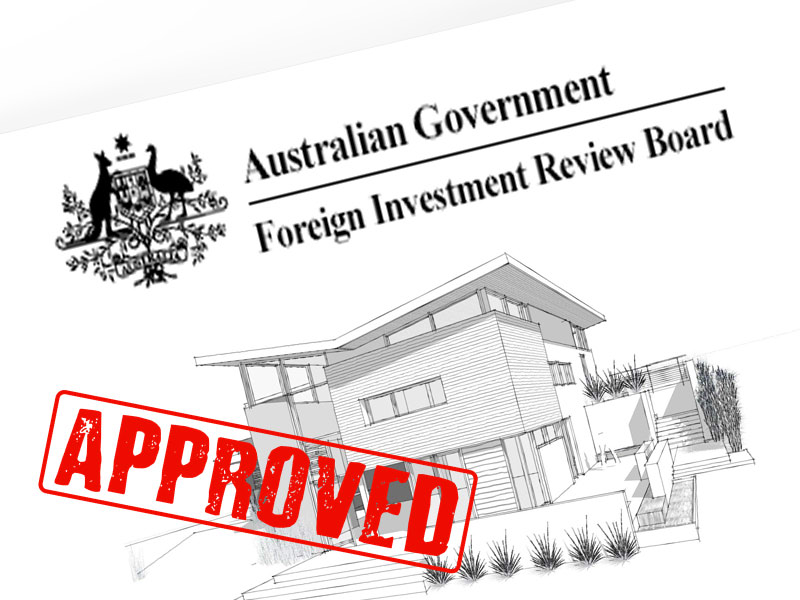Table of contents
- Can I buy a property in Australia as a non-resident?
- What kind of property can non-residents buy in Australia?
- Can foreigners buy vacant land in Australia?
- Are there exceptions to the purchase of dwelling property for foreigners?
- How can foreigners buy commercial property in Australia?
- Does buying property in Australia give you residency?
- What fees should a non-resident pay to buy property in Australia?
- Which individuals are not required to seek approval from FIRB?
- How to apply for FIRB approval?
- When to apply for FIRB approval?
- Can non-residents get a loan in Australia?
- What is Additional Foreign Acquirer Duty?
- Who can help non-residents with the paperwork to buy a house in Australia?
- Parting Comments
Can non-residents buy property in Australia? This continent is an extremely desirable place in which to invest in real estate. If you are from somewhere else, real estate investment is not prohibited for you. However, there are rules set forth by the Foreign Investment Review Board (FIRB) that you must know about first. What are they? How can you make sure you are in total compliance? Read this guide that is specifically geared towards foreign property buyers in Australia.

Can I buy a property in Australia as a non-resident?
As we just mentioned, yes you can with conditions. One condition is you must apply to the FIRB and pay a fee to them. Another condition is you will only be permitted to purchase either new properties or available vacant land. There are reasons for the conditions. The government of Australia does not want foreign investors to compete with its own residents for existing properties. Existing properties are in short supply in some parts of Australia. The government wants citizens to have a crack at it instead of foreigners. That said, if you plan to add to the housing supply, your plans for foreign property ownership in Australia would be welcomed there.
What kind of property can non-residents buy in Australia?

They can either purchase a new building or one that is under construction. It cannot be a property that has already been sold as a dwelling in the past. The parcel of interest to the overseas buyer also cannot have previously been occupied. If it is being sold by a developer, it may NOT have been occupied within the past 12 months.
So, what happens if you violate this rule? If you either, violate the rule or attempt to buy Australian real estate without the approval of the FIRB, you would face three years in prison AND an extremely hefty fine. If an agency was involved in this sale, it would also incur stiff penalties.
Can foreigners buy vacant land in Australia?
Yes, but again, they need to have the approval of the FIRB. This organization will insist the potential buyer meet specific conditions. The conditions include the necessity to build a residential dwelling and have it completed within four years of being approved.
Additionally, the buyer has to provide proof of the completion of this dwelling within 30 days.
Important note: if the land that is currently vacant once had an established dwelling on it, the FIRB does NOT consider that officially vacant. Therefore, approval for this person for the action of buying property in Australia for non-residents would probably be denied.

Are there exceptions to the purchase of dwelling property for foreigners?
The general rule is that foreign investors are not permitted to purchase established properties, but there are some exceptions to this rule which include the following:
- If the foreign investor intends to redevelop the property, increasing the number of dwellings on the land. In other words, they must demolish the existing property, build a new one, and add additional dwellings to the land. However, the redevelopment must involve the construction of more than one additional property.
- Temporary residents can also purchase residential property for their own use, provided they sell the property when they leave the country. If the temporary resident becomes a citizen or permanent resident, they do not need to sell the property.
- The established dwelling rule does not apply to commercial property. Commercial investments are usually approved more easily than residential investments, although they still require approval from the FIRB.
How can foreigners buy commercial property in Australia?
The FIRB has established specific “monetary thresholds” for buying commercial property by non-residents.
The application process is simple, just go to the FRIB website and follow the instructions.
It is crucial for foreign investors to apply for approval and pay the accompanying fees to avoid penalties.

Does buying property in Australia give you residency?
The quick answer is no, it does not. If you are only buying a property you cannot get Permanent Residency status. An exception to that would be if you were applying for a visa in Australia and are using the points system. Also, in some states on this continent, additional points can be earned if you buy either commercial or residential property. Granted, it is tough for a foreigner to buy property in Australia. But, as we noted, it is for good reasons.
What fees should a non-resident pay to buy property in Australia?
First, they have to pay a fee for each application they make or give notice of the application. This is in accordance with the Foreign Acquisitions and Takeovers Act 1975, aka the Act. There will also be a fee due for the house you will be required to purchase.
If your property value increases during your time of ownership, if and when you sell it, you will need to pay a capital gains tax.
If you buy a piece of property in Australia for investment purposes, any income you receive for it MUST be declared. You would do this by filing an Australian tax return. If you incur any repair or maintenance costs, these may be deducted from the tax return.
If you do not live in or rent out this property for at least six months out of every year, you will have to pay an annual vacancy fee. The Australian Taxation Office will determine the amount of your fee.
Which individuals are not required to seek approval from FIRB?
Normally, only individuals who are not permanent residents or temporary residents seeking to buy property in Australia need to apply for FIRB approval. Therefore, the following groups of people do not need to apply for FIRB approval:
- Australian citizens, regardless of their residence status
- New Zealand citizens
- Holders of Australian permanent visas

How to apply for FIRB approval?
An application can be submitted via the Australian government website. The website provides instructions on how to formally apply. Any fees due are required to be paid at the time the application is filed. You will not receive a decision until all fees are paid. Once that is done, it will take about 30 days for you to receive a decision on your application. We can apply for this approval on your behalf.
When to apply for FIRB approval?
When seeking foreign property ownership in Australia, the first thing to do is get approval from the FIRB. There are rules mandated for this, as we have alluded to. The FIRB defines interest in the property as the following actions:
- When you sign a contract, without any conditions, to buy or share ownership in a dwelling;
- When you have a security interest under a real property mortgage. This is necessary even if this person is already a citizen or permanent resident of Australia;
- If you have opted to purchase a property at an agreed price at a future date;
- If at the time an interest in a leasehold agreement is expected to exceed five years, you must have FIRB approval;
- If you already have an interest in the ownership of a dwelling, and you increase your share of that ownership, it must be approved.

Can non-residents get a loan in Australia?
The short answer is yes, they can. Many Australian lenders have strict rules which require borrowers to be Australian citizens if they want to use them as their home loan providers. Even for those lenders who do offer loans to foreigners, they often have more stringent lending requirements, such as:
- requesting a higher interest rate,
- a larger deposit (typically around 30-40%),
- imposing restrictions on foreign income used to repay the loan, and requiring approval from the FIRB.
However, there are still plenty of other options available for foreign borrowers, including internationally recognized banks like HSBC and Citibank which operate in Australia and offer home loans. It’s worth noting that foreign citizens may also have to pay Foreign Citizen Stamp Duty. Despite these challenges, it’s important not to be discouraged and to explore all available options.
What is Additional Foreign Acquirer Duty?
Starting from 1st October 2016, foreigners who purchase residential land in Queensland will be required to pay an additional 7% stamp duty surcharge on all new transactions. The maximum rate of duty in Queensland can be up to 11.75%.
Within 30 days of completing a transaction that is subject to this duty, the foreign buyer must submit a duty statement in the prescribed format to the Queensland Office of State Revenue.
The term “Foreign Persons” refers to:
- Individuals who are not Australian citizens or permanent residents and New Zealand citizens who don’t possess a special category visa;
- Companies that are registered outside of Australia or Australian companies where foreign individuals own 50% or more of the company’s interest;
- A trust where foreign individuals hold 50% or more of the “trust interests.”
Therefore, even if you possess a visa, you are still required to pay the additional stamp duty if you are considered a foreign person under these rules.

Who can help non-residents with the paperwork to buy a house in Australia?
In a nutshell, it is the conveyance solicitor. They are the ones who facilitate all real estate transactions in Australia. They will advise a buyer of all necessary steps whether they are an Australian resident or an overseas buyer of property in Australia. When acting for foreign investors, we will include a ‘subject to FIRB’ clause in contracts which makes the contracts conditional on FIRB providing approval. This means that if FIRB approval is denied or not granted within a certain period, contracts can be cancelled, and depending on the clause, the deposits may be returned.
If you are from New Zealand, Australia already has special property buying agreements with your homeland. It is a good idea to know all applicable laws and rules regarding a potential purchase of Australian property. A conveyance solicitor knows them inside and out and will help you.
Parting Comments
We are conveying solicitors in Queensland and the NSW with over 30 years of experience, so if you would like to know more about property transfers, just send an email or call us 1300 185 636, it’s free. If you have already chosen a type of property and want to know the details of how much the transfer of your property can cost, just fill in the Instant Quote, it’s also free.
Note: This article is intended to provide a general overview of only a few circumstances where Foreign Buyers are required to apply for approval from the Foreign Investment Review Board (FIRB). Please ensure that you seek legal advice from us regarding whether you are required to apply for FIRB.


